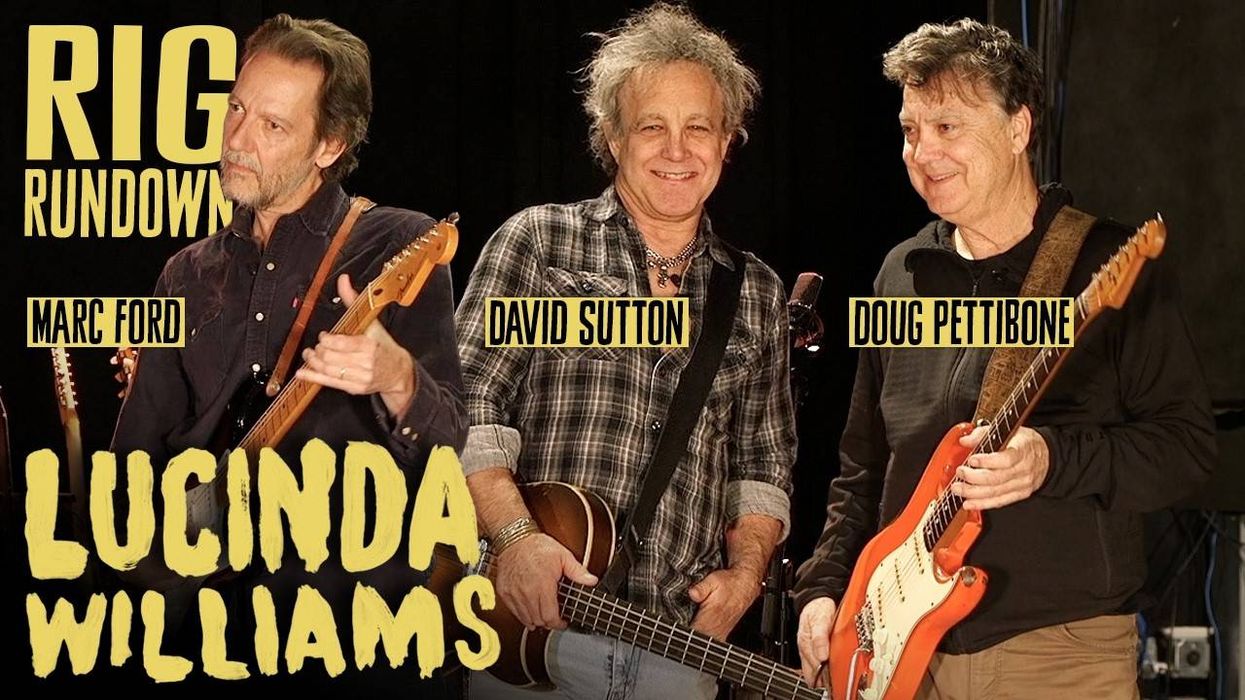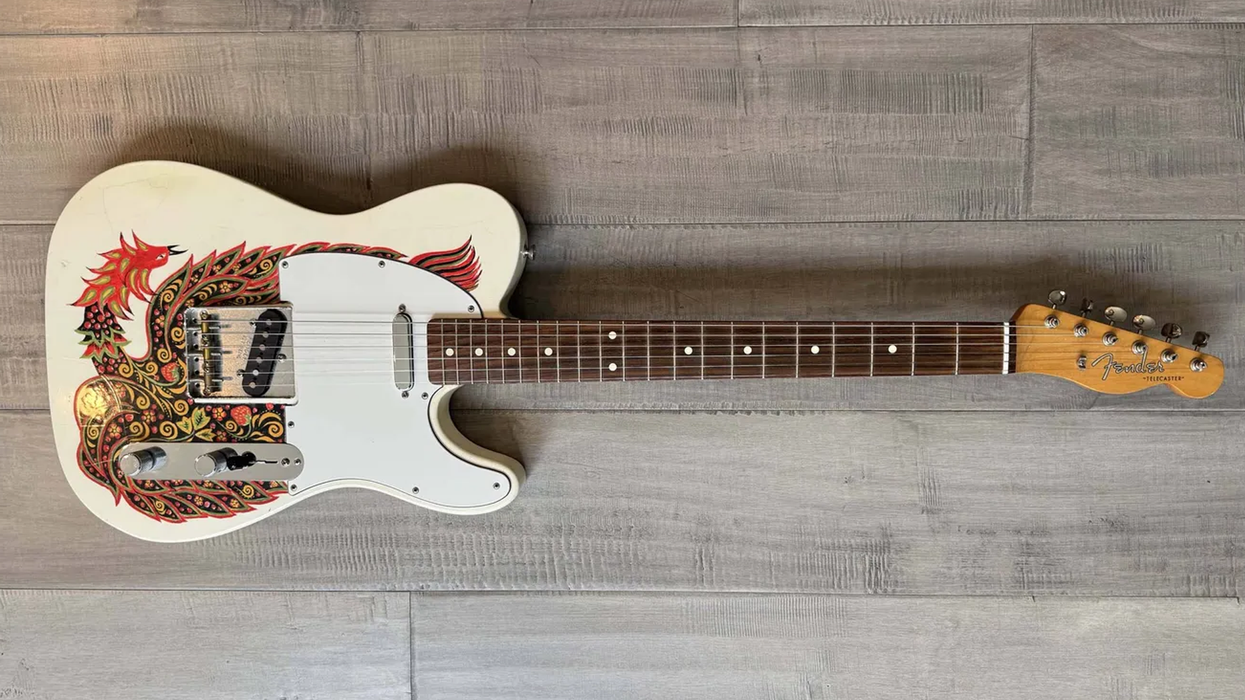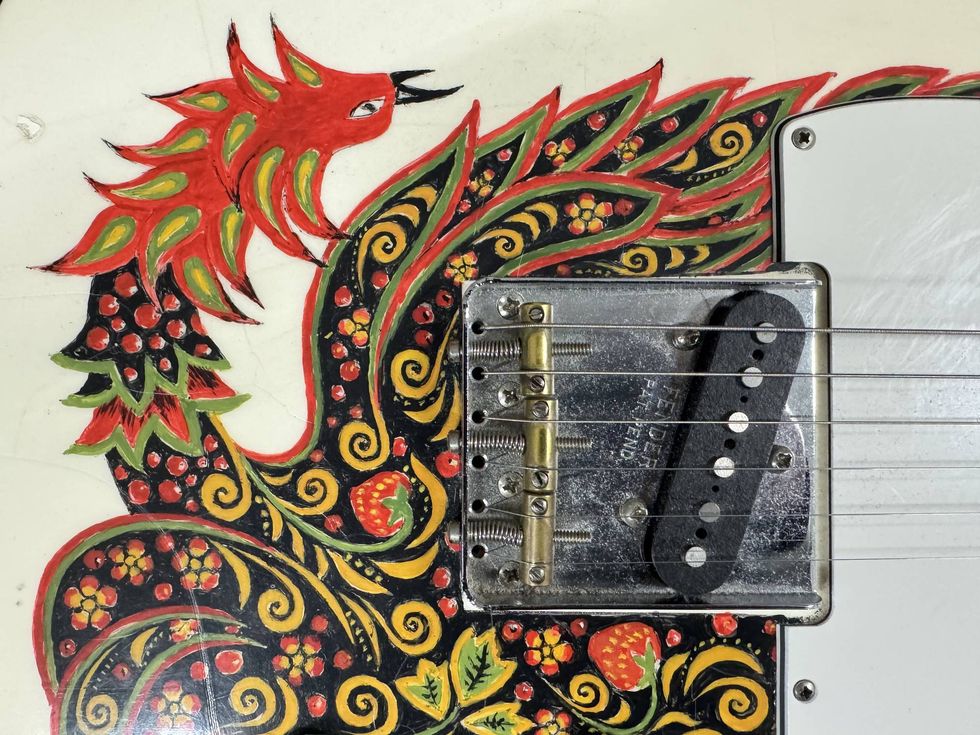This starts the same way every few months. A looming deadline on the calendar regularly catches my eye. I've got a few specific ideas bouncing around my brain cave that I fail to fully develop. Feels like it's mostly been talked about: the best overdrive pedal, the difference between delays and reverbs, how to arrange your signal chain, and what power supply to use. The older I get, the more articles I've read and the more topics I've seen covered. But there's one topic I've often thought of privately, but feared to communicate publicly.
The Fender Stratocaster is, for multiple reasons, an incredibly boring, dad-bedroom rock guitar in all the worst ways. And I've started to feel something that resembles an ashamed love for them.
Please, indulge me a moment to fully state and defend my position—one of purely subjective disdain turned irrational affection for the most commonplace, overproduced body style in the gear world.
It's not a new story. I, like many young guitarists coming of age in the late 1990s and early 2000s, got an informal education about the latest and greatest gear as well as the “might never sell, because that instrument has been sitting in the same spot for the last 12 months" list via the big box music stores. There was the latest $99 Squier Strat sitting next to a $2,500 American-made Fender Custom Shop Stratocaster with all the bells and whistles and no discernible aesthetic differences. Good for you, Squier.
I couldn't tell the difference. And I was turned off for years on Strats. Couldn't find any redeemable qualities. Any band in a genre outside of the scope of my personal preference was easy to picture playing a flaming red Stratocaster with an untouched bright white pickguard. I wanted nothing to do with it. Until all my words were politely packed into a shit sandwich that I was forced to consume. And enjoy.
There was this Strat that my buddy picked up through a Craigslist ad. It was owned by some kid who put a bunch of weird parts on it, including a strange “metal"-ish nut, spray painted the body an off-putting light blue, scratched patches of that spray paint off in an unnatural fashion, and then, intentionally or not, put a lot of what resembled bodily fluid stains all over it. This thing was garbage. And it was an American-made Fender. And it was $200. I bought it from my buddy as a junker Strat to have around. I didn't realize I would write every song and reasonable riff on that guitar from then on.
This was my turning point. I started to understand. Strats are great-sounding versatile tools for making music. Seems obvious, but I didn't care until I felt the connection to one. I was too busy basking in my subjective yet unqualified judgment of an overproduced instrument to give it a shot. And I know there's a lesson somewhere in there—something about not judging a book by its cover, or a guitar by its most prominent players. By leaning into the inspiration I felt from this guitar that I had a strong distaste for, a new season of 6-string creativity bloomed for me.
Writing about it makes it seem like a collection of obvious “duh" moments of realization regarding a trivial, materialistic, non-important subject. But at the end of the day, I like playing that Strat more than anything else. I like the songs that come out of it. And that is what matters. I can sit in my living room and feel inspired and gather ideas with that guitar, knowing that whatever I did next with those ideas could be played on any guitar anywhere through any pedals and amps, and the idea would still feel good. At this point, I'm not afraid of what the Strat represents, but rather I enjoy what it does for me. It stirs my creative pot. It gets the results.
I believe in that. It's better to enjoy playing and feel good while making music than laboring intensively and punishing yourself to get results. I think results will come naturally if you're feeling creative and able to lean into the tools that get you there—Strats, stomps, or whatever. I guess that's what I'm saying with this long-winded yarn. It's what I'm always saying. Grab hold of what works for you, enjoy the journey and the process, and make something cool that you're proud of. That's all you can really hope for in this world, probably.


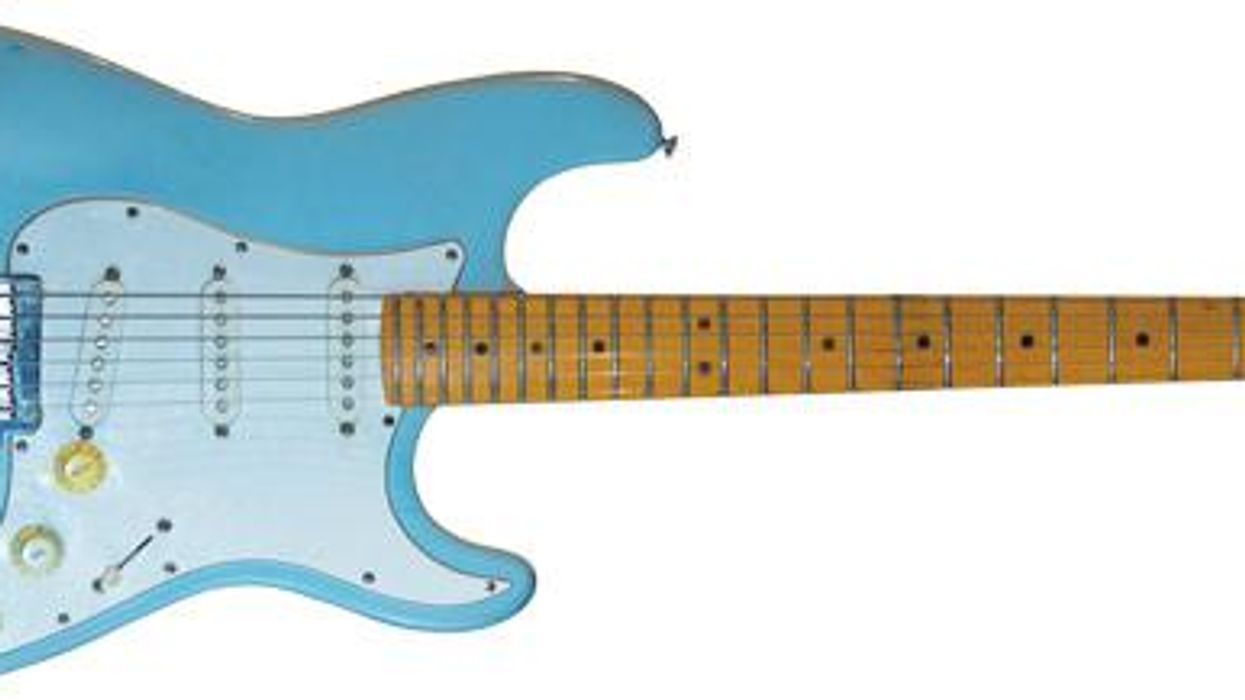




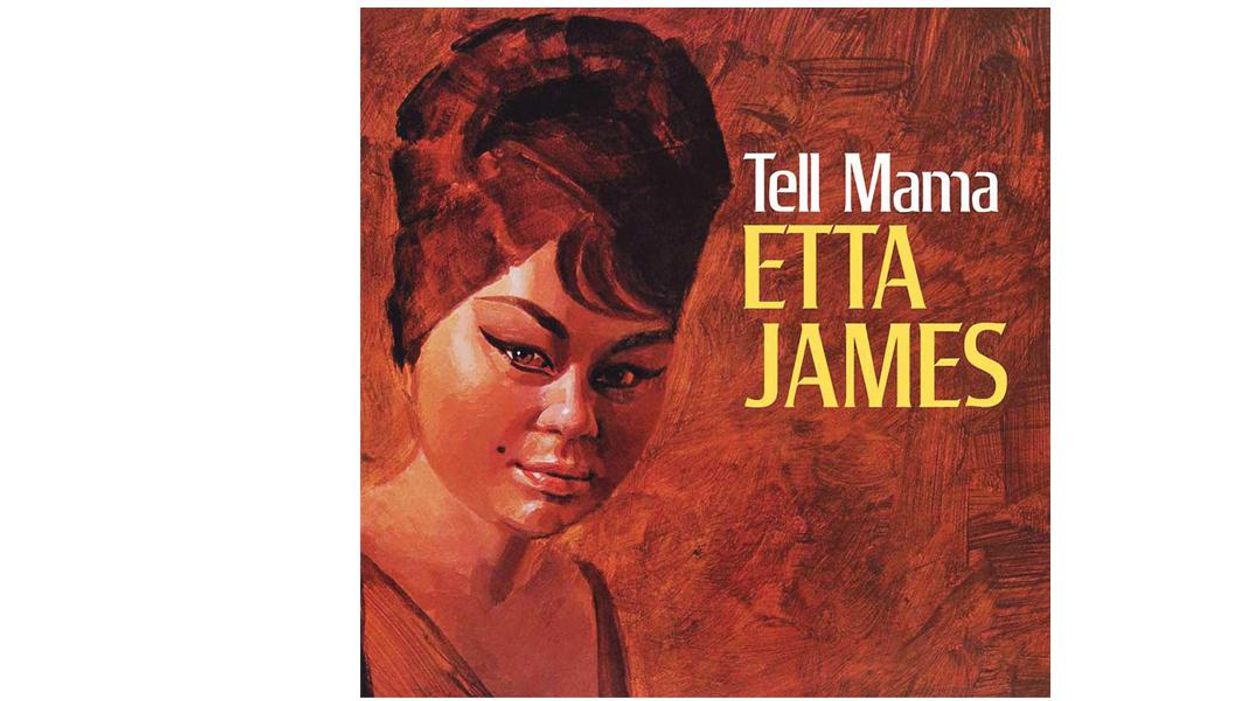



![Rig Rundown: Russian Circles’ Mike Sullivan [2025]](https://www.premierguitar.com/media-library/youtube.jpg?id=62303631&width=1245&height=700&quality=70&coordinates=0%2C0%2C0%2C0)

